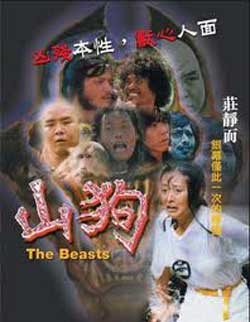

On the other hand, we can not simplify the problem between mainland censorship and Hong Kong cinema as unilateral castration or rape imposed on the less privileged by the dominating ideology. Though their movies are screened in heavily cut and edited version in the mainland, the distorted versions still contain subversive fissures (author’s emphasis). Some Hong Kong filmmakers are persistently exploring the historical and cultural identities of Hong Kong through the images, and questioning the interrelationship between Hong Kong and the Mainland. However, the alternative mainland version should not be disregarded or discarded like “a malformed twin brother” of the authentic Hong Kong movie, as a mainland media practitioner Xu (2009) maintains in his essay “Hong Kong Cinema as Transborder Visuality”,

So far the topic of “two versions” had seldom been touched in depth as it is sensitive and awkward to the Chinese mainland scholars, while to the scholars outside the Mainland, they lack personal experience and access to first-hand materials (the Mainland versions are only available in the Mainland and dubbed in Mandarin). I will argue that the two-version phenomenon is a result of the economic collaboration between Hong Kong Special Administration Region (HKSAR) and the PRC as “one country”, and also that it is a reflection of the ideological divergence of the two operating systems. How does the phenomenon reflect the transitional nature of post-1997 Hong Kong cinema and affect its future direction?.


Lam Institute for East-West Studies, Hong Kong Baptist University. Note: An earlier version of this article was first published in 2010 in the Working Paper Series, David C. In light of that, apart from elucidating the context, causes and impacts of the phenomenon, the interlocking relationship between market, censorship and piracy will be explored against the backdrop of the marketisation of the movie industry in China. Moreover, with the illegal digital dissemination of the original movies by such means as pirate DVDs and Internet downloads, the control in PRC has become porous in the digital era which has further complicated the problem of the ideological confrontation of the “two systems”. This paper seeks to explore the interrelationship between the “one movie, two versions” phenomenon and the “one country, two systems” policy: to what extent is the long-existing multi-version practice influenced and scaled up by the unprecedented formula? And how does the phenomenon reflect the transitional nature of post-1997 Hong Kong cinema and affect its future direction? I will argue that “two-versioned” Hong Kong films are a result of economic collaboration and the ideological divergence between Hong Kong and PRC, the two ends under “two systems”. Hilary Hongjin HE – University of Western SydneyĪ large number of Hong Kong movies theatrically released in Mainland China are more or less variations of the original Hong Kong edition due to the market entry requirements and the censorship in PRC. “One Movie, Two Versions”: Post-1997 Hong Kong Cinema in Mainland China


 0 kommentar(er)
0 kommentar(er)
